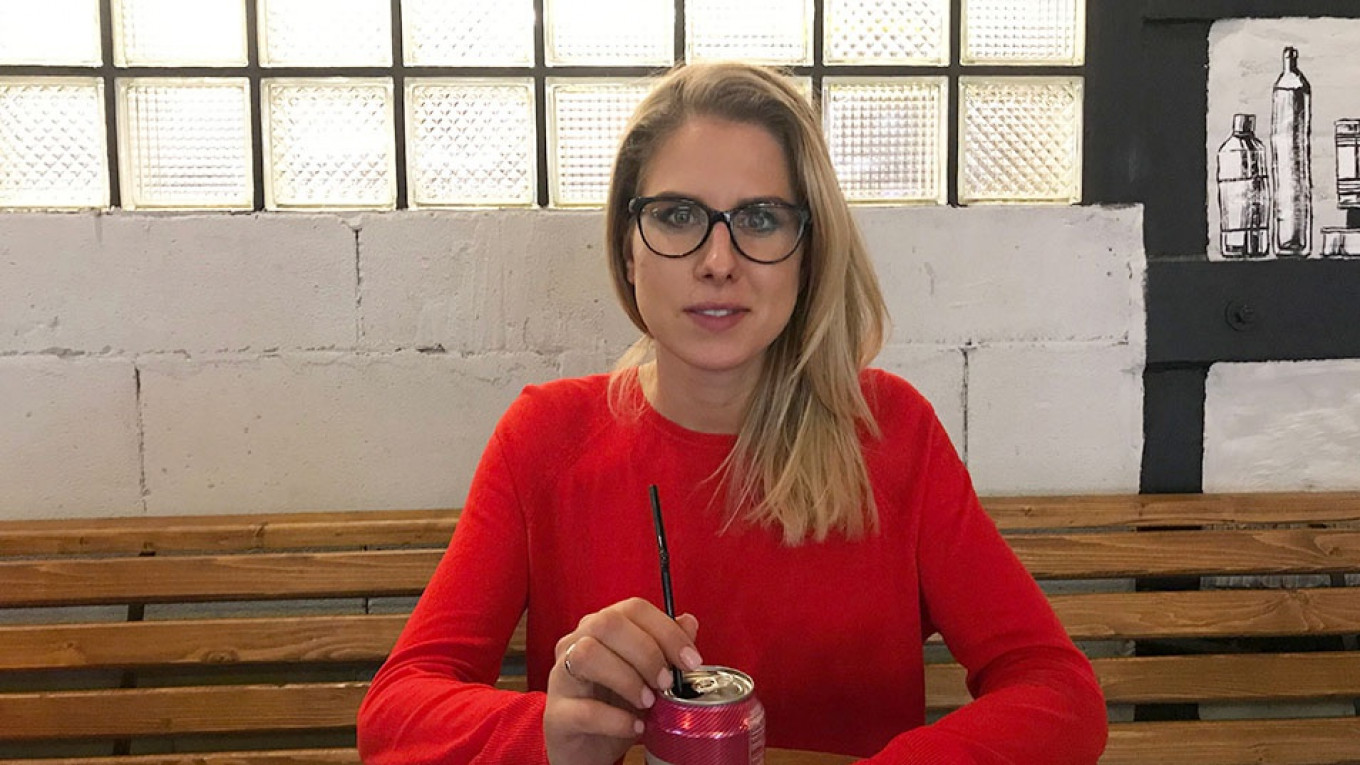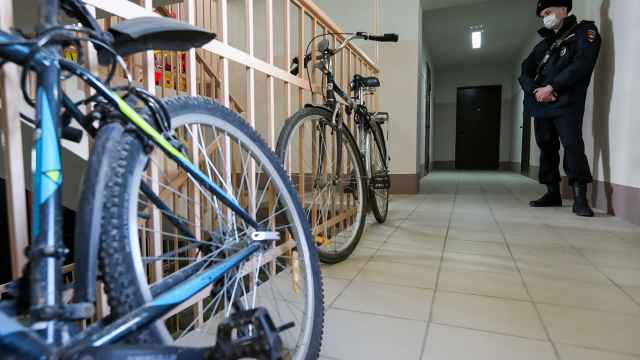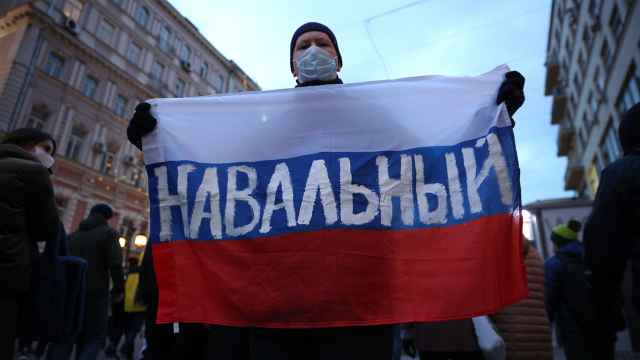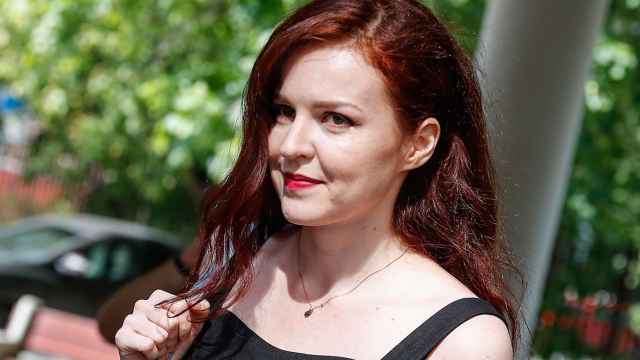“Are you even listening to me?”
It’s 10:30 a.m. and Lyubov Sobol has been talking uninterrupted for an hour. Sobol, the producer of opposition politician Alexei Navalny’s live YouTube shows, ploughs through her monologue even during hair and makeup before an on-camera interview later that day.
Her stylist presses a hand against Sobol's head to hold her steady, but Sobol keeps shifting toward me to make sure I’m paying attention.
We had met earlier at the Omega Plaza business center in Moscow where Navalny’s offices are based. Sobol looked more like a white-collar professional than an opposition figure: with a copy of the RBC business newspaper under her arm and a yogurt parfait and black tea in hand, she strode into the lobby wearing a new feather fur coat. (“It’s fake,” she assured her Instagram followers. “All animals have been left in one piece.”)
But Sobol, 31, is eager to point out that she is Navalny’s longest-serving aide. Immediately after graduating with a law degree in the spring of 2011, she joined his newly formed Rospil.info project, which tracks corruption in state tenders. Then came the December Bolotnaya protests Navalny helped organize against election fraud and President Vladimir Putin’s re-election. That month, Forbes Russia included Sobol on its year-end list of “faces few know.”
Not anymore. She has since become one of the most recognizable personalities of Navalny’s team. She became a key part of his Anti-Corruption Foundation, which has shone a light on the excesses of Russia’s highest officials, including Prime Minister Dmitry Medvedev. She ran for the Moscow Duma in 2016. And, since July, she has become the head of Navalny LIVE, a set of four live shows on news, politics, economics and cultural trends on YouTube that boasts nearly 600,000 subscribers.
While the channel carries Navalny’s name, Sobol has become its flagbearer. “I needed a face, a leader for the channel,” the opposition leader said of his decision to put Sobol in charge. “I needed a politician who will speak their mind.”
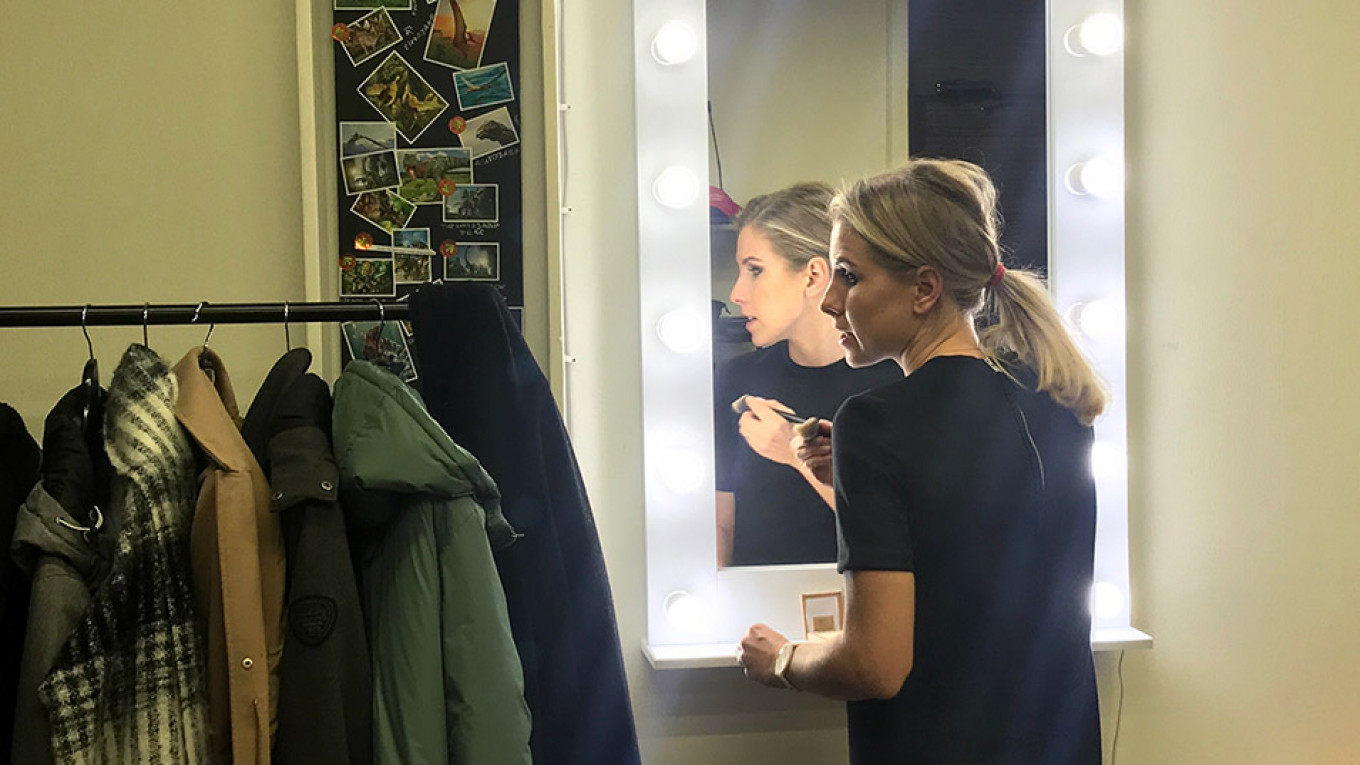
With Navalny barred from state television, YouTube has provided a workaround in his effort to reach a mass audience. Launched in March 2017, the channel has helped galvanize Navalny’s base, bringing thousands into the streets in protest of what they see as the Kremlin’s rampant corruption. Now, the opposition politician is hoping to lean more heavily on the platform in an effort to grow his movement.
“There is an audience of 20 million for us that I believe we can harness,” Navalny says, estimating that he reaches up to six million with his main channel and live shows combined.
For that, he gives credit to Oxana Baulina, the former producer who “got the channel off the ground.” But she was a journalist, not a politician. And, Navalny tells me, Sobol has the “willingness to experiment” and the “passion and drive” to bring eyeballs to his message.
The young staff that works for Sobol (average age: 24) agrees. “Sometimes she’ll shoot us a message at three in the morning and then she’s still here at eight ready to go,” says Alyona Medvedeva, a co-host of the “Cactus” morning show about social media trends, aimed at teenagers and young adults.
When we met that morning, Sobol’s eyes were red, and she asked her stylist for eye drops. “They’ll be red until Putin leaves office,” she joked.
But once we sat down for lunch of Asian fusion — by which time she had helped finalize the script for Navalny’s weekly live show that evening, planned future content and given an interview to the liberal Radio Svoboda outlet about the Anti-Corruption Foundation, all before attending a daily meeting — she turned serious.
“All my work is driven by one very simple goal,” she said. “I want justice in our country. I want us to follow the principles written in our constitution.”
Striving toward that goal has brought her in touch with dangers most shy away from. Two years ago this month, Sobol’s husband, the sociologist Sergei Mokhov, was stabbed in the thigh with a psychotropic substance, rendering him convulsing and unconscious. The event shook Sobol.
But, she says, it only hit home several weeks ago, when the investigative Novaya Gazeta newspaper reported that the hit was directed by Yevgeny Prigozhin, who has been linked to alleged U.S. presidential election meddling and proxy wars in Ukraine and Syria. The article, based on interviews with a purported Prigozhin employee, outlined a series of similar attacks that allegedly left at least one opposition blogger dead.
“I realized that I could have become a widow,” says Sobol, who has a four-year-old daughter with Mokhov. “I hadn’t fully processed it over the past two years.”
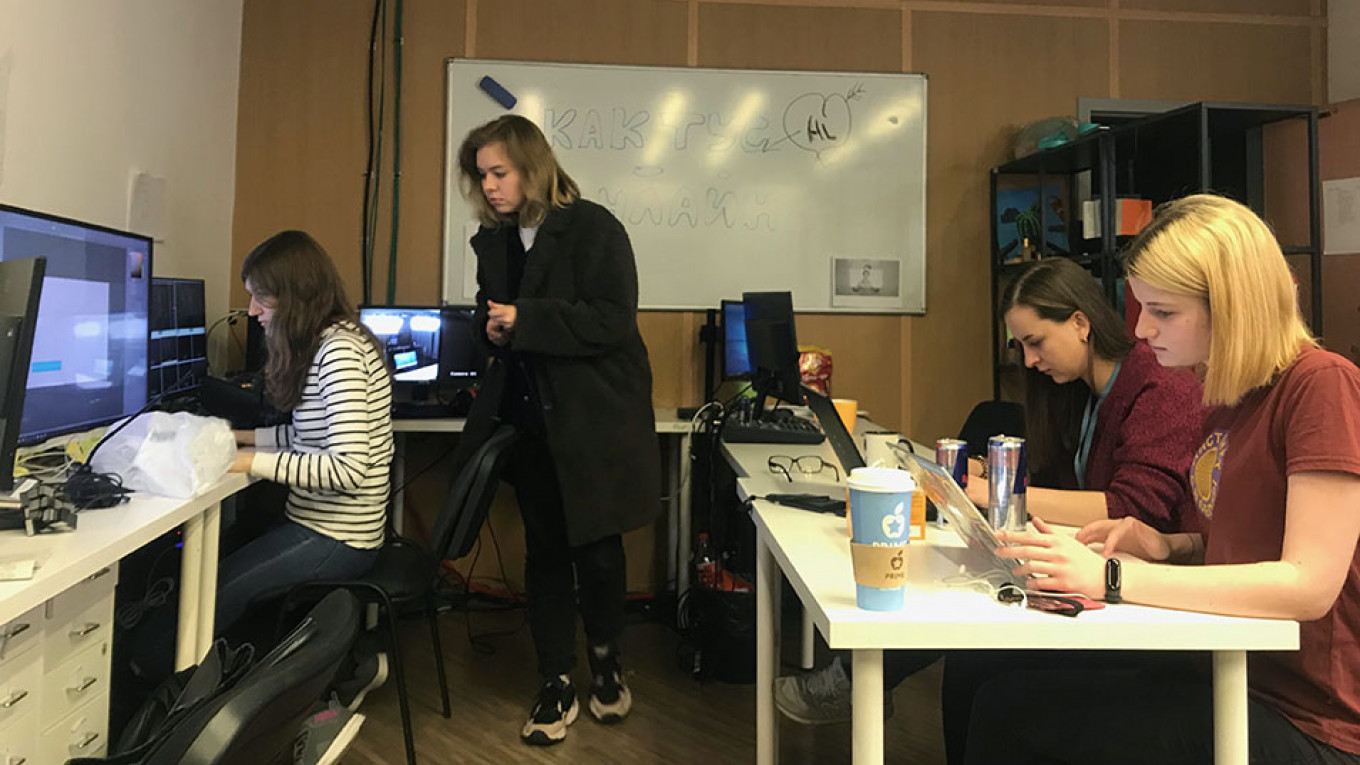
Still, she says that, back when she was starting out, Navalny had prepared her for what could transpire: His first question in their interview was not about her legal expertise, but about fear.
“I have never had rose-tinted glasses about any of this,” Sobol told me. “I understood in 2011 what the dangers were, and I am clear about them now. Of course I am scared for my daughter, but that’s why I am working here: to leave her with a better country to grow up in.”
At the moment, that work consists of winning Navalny a wider audience — and Sobol has big plans. In addition to wanting to host shows in front of live audiences, she believes comedy can be a tool for reaching across divides.
“There is currently no Russian John Stewart or John Oliver,” she said, referring to hosts of popular late night comedy shows in the United States with a political bent. “We need to give people variety and entertainment or they will get tired of us.”
Pushing the channel in that direction has, however, resulted in some internal grumbling. One Anti-Corruption Foundation employee, who asked to remain anonymous to speak candidly about a close colleague, pointed to an Oct. 19 episode of Cactus, in which co-host Vitaly Kolesnikov joked that Putin “overcompensates because of his small member.”
“I’m not sure a Navalny show should be discussing Putin’s penis size,” the employee said. He also claimed that “a majority of the team does not agree with the direction Navalny LIVE has taken.”
Both Sobol and Navalny do acknowledge that there are kinks to work through. But they also both emphasize that stretching the boundaries is essential if they are to be able to pull in a bigger audience.
Nonetheless, in their own shows, both remain conservative.
Since taking on the role of producer, Sobol has also launched her own show for Navalny LIVE, “By the Facts,” which follows the familiar Navalny format: news, analysis, political message, repeat. Sobol proudly notes that all of the recent episodes, which come out four times per week, have garnered at least 100,000 views; several have even reached above 300,000. It’s still only half the number of views Navalny gets, but Sobol is closing the gap.
“I can honestly say this was a surprise to everyone,” says Navalny in their studio, with Sobol standing behind him. “She is competing with me, and” — now joking — “I’m even a little jealous of how many views she’s getting.”
For her part, Sobol tries to project bashfulness. She insists that, up until the last minute, she didn’t even want to be the show’s host, but that she decided she was “what the program needed.”
During Navalny’s show that evening, Sobol helped the team with social media promotion. She also tended to her own, replying to messages on Facebook and her Twitter account, which boasts some 124,000 followers, and where her own political ambitions can often be gleaned. In one recent tweet, for instance, she offered to debate a State Duma deputy on state television.
Even after the livestream ended at 9 p.m., Sobol’s day wasn’t over just yet. She was off to the Ekho Moskvy radio station’s annual birthday party, a who’s who of Moscow’s liberal elite. I lost Sobol as soon as we entered, watching her glide into a crowd that opened up to let her through, then formed back around her.
When I found her again, a young man was asking for a selfie. As they posed, he asked, referring to Navalny, “Will our next president be coming?”
Sobol held her smile, waiting for the fan to snap the photo. Then, once he had pulled away, she bristled. “I don’t know,” she said. “I’m not his press secretary.”
A Message from The Moscow Times:
Dear readers,
We are facing unprecedented challenges. Russia's Prosecutor General's Office has designated The Moscow Times as an "undesirable" organization, criminalizing our work and putting our staff at risk of prosecution. This follows our earlier unjust labeling as a "foreign agent."
These actions are direct attempts to silence independent journalism in Russia. The authorities claim our work "discredits the decisions of the Russian leadership." We see things differently: we strive to provide accurate, unbiased reporting on Russia.
We, the journalists of The Moscow Times, refuse to be silenced. But to continue our work, we need your help.
Your support, no matter how small, makes a world of difference. If you can, please support us monthly starting from just $2. It's quick to set up, and every contribution makes a significant impact.
By supporting The Moscow Times, you're defending open, independent journalism in the face of repression. Thank you for standing with us.
Remind me later.



